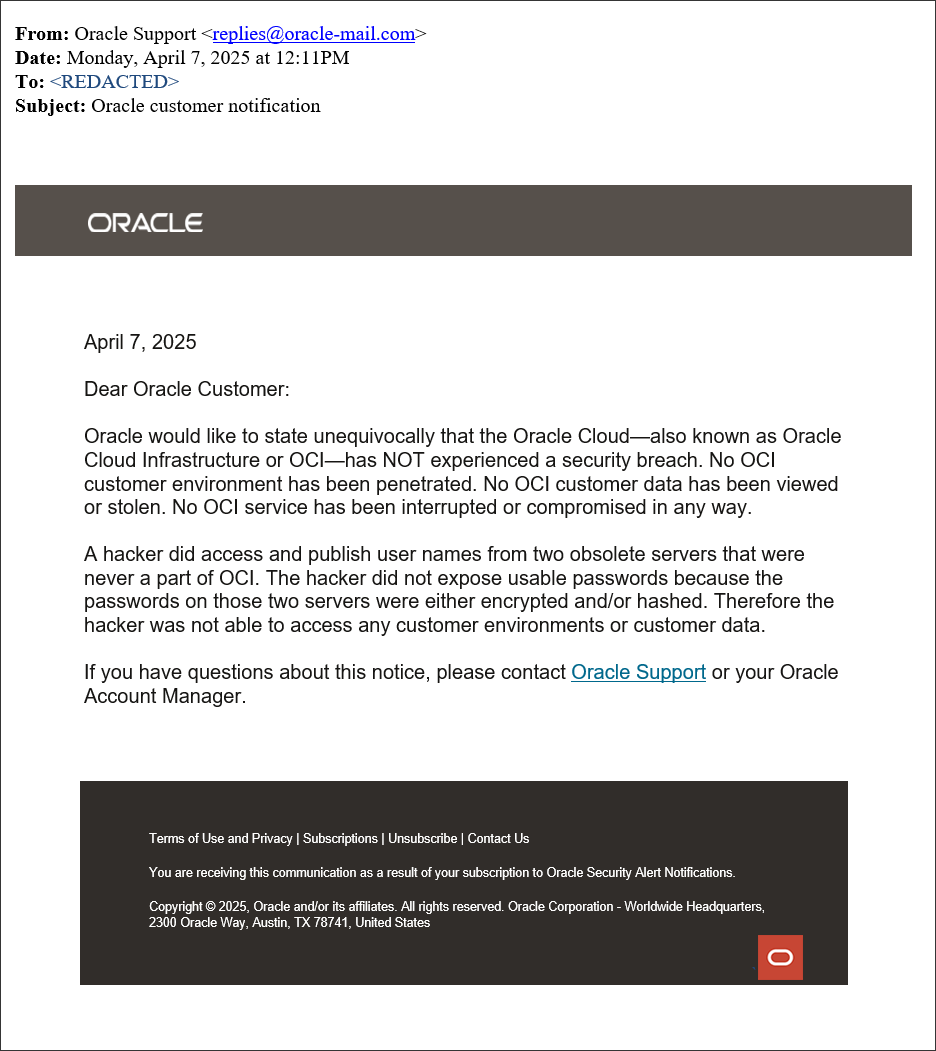
Overview of the Oracle Cloud Compromise
Recently, the Cybersecurity and Infrastructure Security Agency (CISA) issued a critical warning about the elevated risks of breaches following the compromise of legacy Oracle Cloud servers. This incident underscores a significant threat to enterprise networks, potentially exposing sensitive credentials which could lead to unauthorized access if not properly managed.
Detailed Insights from CISA’s Alert
According to CISA, the breech concerned poses a considerable risk, especially where credential material is at stake. Exposed credentials could potentially be reused or embedded in various unaffiliated systems, raising the risk of long-term unauthorized access:
- Embedded credentials are hard to detect and can facilitate unauthorized access over extended periods if compromised.
- The breach could impact usernames, emails, passwords, authentication tokens, and encryption keys—posing a substantial threat to any enterprise environment.
Guidance from CISA on Mitigating Risks
To combat the threat arising from this credential leak, CISA has rolled out specific guidance aiming to fortify network defenses:
- Network defenders are urged to reset the passwords of affected users.
- Replace hardcoded or embedded credentials with robust authentication methods.
- Implement phishing-resistant multi-factor authentication (MFA) across systems as much as possible.
- Keenly monitor authentication logs for any signs of suspicious activity.
Oracle’s Response to the Breach
Oracle has confirmed via email notifications to its customers that the credentials were stolen from two legacy servers, termed as ‘obsolete.’ However, it reassured that Oracle Cloud servers and customer data remained uncompromised during this incident. Oracle also acknowledged to some clients that attackers had accessed old client credentials through a legacy environment last active in 2017, with newer records from as recent as 2025 being published by the hacker on online forums.
Additional Security Concerns Identified
Furthermore, in March, cybersecurity experts from CybelAngel revealed that attackers managed to install a web shell and additional malware on some of Oracle’s first-generation cloud servers as early as January 2025. Before detection in late February, it was believed that significant amounts of data were stolen from Oracle Identity Manager’s database which contained hashed passwords, usernames, and user emails.
Additional reports surfaced with BleepingComputer confirming that Oracle also reported another breach in January involving Oracle Health, impacting patient data across multiple U.S. healthcare providers and hospitals.
This series of security lapses and the subsequent advisories by CISA highlight the relentless challenges that cloud services face in safeguarding user data against sophisticated cyber threats.
Related: Critical Update: Microsoft Releases Emergency Patch for Windows Server Container Launch
Last Updated: April 17, 2025




